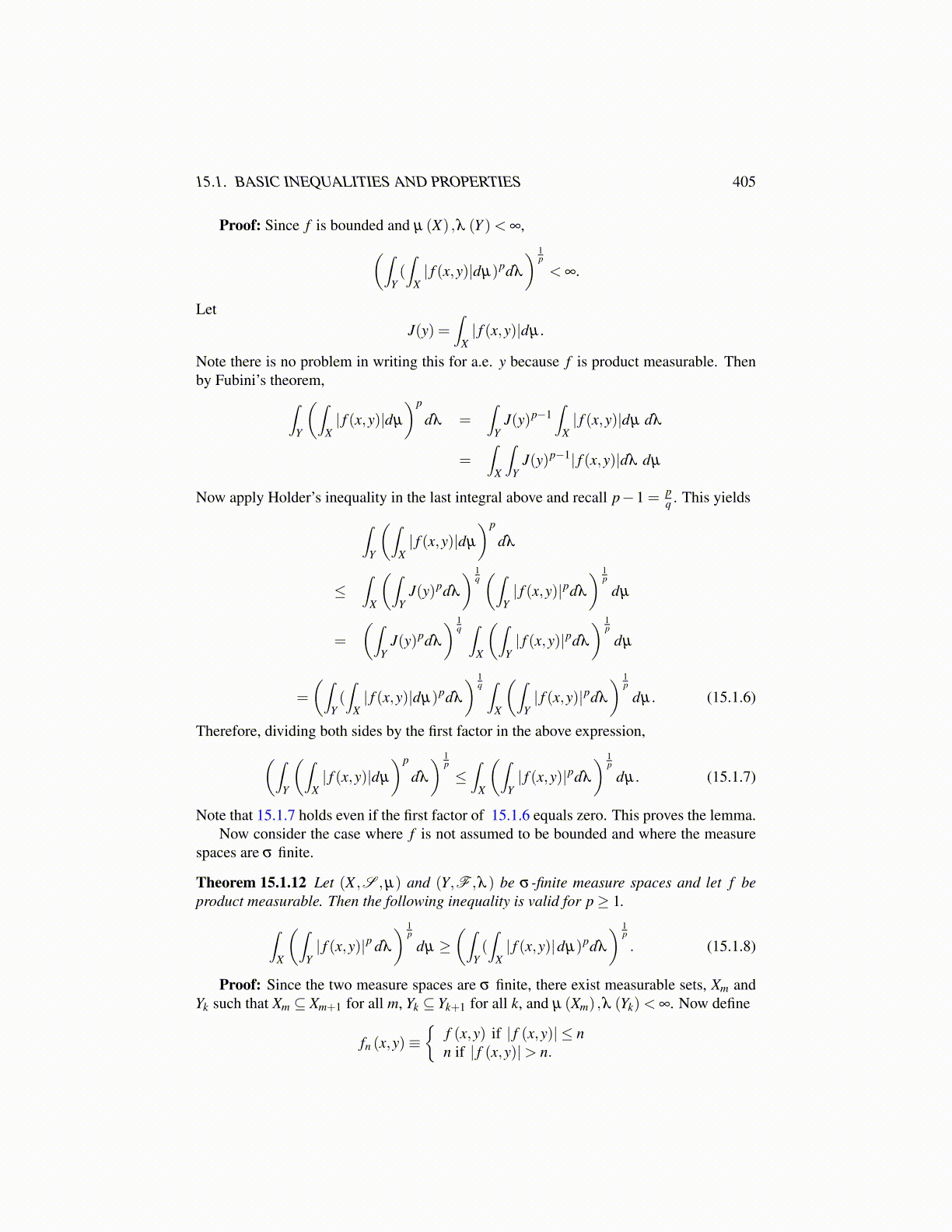
15.1. BASIC INEQUALITIES AND PROPERTIES 405
Proof: Since f is bounded and µ (X) ,λ (Y )< ∞,(∫Y(∫
X| f (x,y)|dµ)pdλ
) 1p
< ∞.
LetJ(y) =
∫X| f (x,y)|dµ .
Note there is no problem in writing this for a.e. y because f is product measurable. Thenby Fubini’s theorem,∫
Y
(∫X| f (x,y)|dµ
)p
dλ =∫
YJ(y)p−1
∫X| f (x,y)|dµ dλ
=∫
X
∫Y
J(y)p−1| f (x,y)|dλ dµ
Now apply Holder’s inequality in the last integral above and recall p−1 = pq . This yields∫
Y
(∫X| f (x,y)|dµ
)p
dλ
≤∫
X
(∫Y
J(y)pdλ
) 1q(∫
Y| f (x,y)|pdλ
) 1p
dµ
=
(∫Y
J(y)pdλ
) 1q ∫
X
(∫Y| f (x,y)|pdλ
) 1p
dµ
=
(∫Y(∫
X| f (x,y)|dµ)pdλ
) 1q ∫
X
(∫Y| f (x,y)|pdλ
) 1p
dµ . (15.1.6)
Therefore, dividing both sides by the first factor in the above expression,(∫Y
(∫X| f (x,y)|dµ
)p
dλ
) 1p
≤∫
X
(∫Y| f (x,y)|pdλ
) 1p
dµ . (15.1.7)
Note that 15.1.7 holds even if the first factor of 15.1.6 equals zero. This proves the lemma.Now consider the case where f is not assumed to be bounded and where the measure
spaces are σ finite.
Theorem 15.1.12 Let (X ,S ,µ) and (Y,F ,λ ) be σ -finite measure spaces and let f beproduct measurable. Then the following inequality is valid for p≥ 1.∫
X
(∫Y| f (x,y)|p dλ
) 1p
dµ ≥(∫
Y(∫
X| f (x,y)|dµ)pdλ
) 1p
. (15.1.8)
Proof: Since the two measure spaces are σ finite, there exist measurable sets, Xm andYk such that Xm ⊆ Xm+1 for all m, Yk ⊆ Yk+1 for all k, and µ (Xm) ,λ (Yk)< ∞. Now define
fn (x,y)≡{
f (x,y) if | f (x,y)| ≤ nn if | f (x,y)|> n.